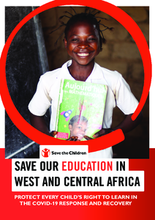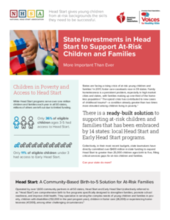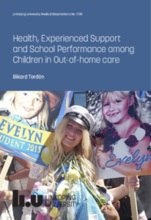Displaying 41 - 50 of 350
This study aimed to explain the development of the educational gap between children in “out‐of‐home care” (CLA), children deemed in social need (CIN), and other pupils.
The study substantiates the organizational, psychological, pedagogical and socio-legal principles of creating a safe educational environment for children deprived of parental care, providing the proper conditions for their socialization, harmonious physical, mental, moral and volitional, and spiritual development.
This document sets out the Scottish Funding Council's National Ambition for Care-Experienced Students for the college and university sectors, outlining their commitment to equal outcomes for care-experienced students and their peers by 2030.
This brief from Save the Children describes how the COVID-19 pandemic has disrupted children's education in West and Central Africa and outlines recommendations for responding to the growing vulnerabilities of children in the region.
This brief from Head Start provides an overview of state funding for Head Start, a collection of comprehensive birth to five programs in the U.S. specifically designed to strengthen families, promote school readiness, and improve child health.
The 2020 Global Education Monitoring Report recognizes the contexts and challenges facing countries in providing inclusive education; the groups at risk of being excluded from education and the barriers individual learners face, especially when various characteristics intersect; and the fact that exclusion can be physical, social (in interpersonal and group relations), psychological and systemic.
This thesis aimed to explore health, abuse, support, and preconditions for school among children in out-of-home care (OHC) in Sweden and to assess changes after an intervention targeting foster children’s school performance.
This article focuses on the lived experiences of orphaned learners and their perspectives relating to the support offered by the School-Based Support Team (SBST) within schools, in two education districts of the Free State province, South Africa.
This randomized control trial aimed to assess how much Teach Your Children Well (TYCW) - a tutoring program that enhances the academic skills of children in care - tutoring is enough to accelerate learning.
The purpose of this paper is to clarify the process of going to college and subsequent college life of those who have experiences of entering Child Care Institutions (CCI) in Japan and to discuss higher education policies concerning ‘child poverty’ based on the results.




